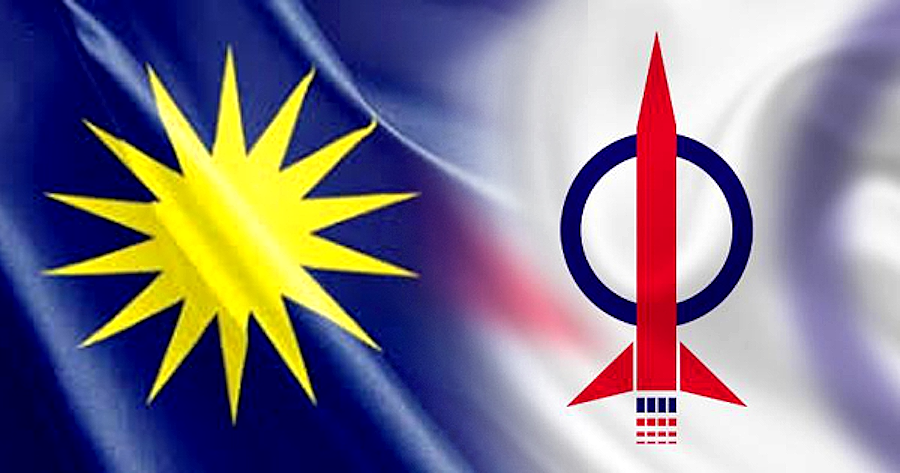
A Malay friend recently posed a rather interesting question to me: We Malays are constantly talking about a grand unity. Don’t you Chinese need the same?
I felt a pang hearing this, two distinct pictures instantly flashing past my mind: firstly, when the Chinese are shouting a grand unity slogan, the Malays invariably see this a threat; and secondly, will MCA and DAP, at odds with each other for decades, possibly put their grudges behind them and work together for the community’s well-being?
A grand unity the Malaysian Chinese community has been longing for has never been meant to confront the Malays nor any other ethnicity, but for the defense of their own rights and survival while working with other communities to expand the economic cake, not to undermine the interests of the Malays.
As an ethnicity that has in recent decades seen its numbers steadily dwindling, the Chinese sense a lack of security much more pressingly than the Malays, and thus more urgently need to seek intracommunity unity.
Being the largest ethnic group in the country, the Malays should more confidently take the lead in running the nation with integrity and uniting the nation towards a more harmonious, prosperous and progressive society so that all Malaysians irrespective of race and religion can proudly lift their heads up and shine in the international arena, instead of narrow-mindedly chant the “Malay grand unity” year in and year out.
Unfortunately, having been independent for so many years, our Malay parties have never ceased to sentimentally blackmail their own people—all in the name of “unity”—alleging that they will lose everything they now have if they fail to stay united because their rights are being intimidated by other communities.
As for Chinese parties, they are equally oblivious to the crisis their community is facing, and have continued to fight among themselves, seeing one another as ultimate enemies.
Mainstream political parties—from BN, Pakatan Harapan, Perikatan Nasional, to the Unity Government we have today— on whom we have pinned so much hope, have been consistently provoking intercommunity sentiments for their own gains, which is disheartening and deplorable.
While MCA has since its inception openly proclaimed itself as a Chinese-based party, DAP has stressed its multiracial representation. Having said that, it is beyond doubt that the latter has prospered principally on the Chinese vote.
Whether you like it or not, even though DAP has never tagged itself a “Chinese-based party,” it is genetically “very Chinese.”
The Chinese electorate threw their full support behind DAP because the party said MCA would never deliver, and that they could fix the country’s problems.
After the SPM A- grade issue was resolved, there have been contemptuous reactions towards some “thank you MCA” comments popping up on social media platforms, in particular Facebook, arguing it was a trick orchestrated all by MCA itself.
Nonetheless, it is not at all impossible that this whole thing could have stemmed from the cumulative disenchantment DAP’s supporters have felt for the party, in a way the general population increasingly disapproves of the government of the day!
Sure enough the Unity Government can choose to ignore this phenomenon and blame the rival parties and media for instilling such illusion.
I am more eager to see a grand unity among all Malaysians of diverse backgrounds than unities within individual ethnic cocoons.
Meanwhile, it is detrimental if the power to be remains incapable of arresting or reversing the damage the current judicial crisis could wreak upon the basis of the nation’s separation of powers!
As for MCA, many assert that the party is no longer relevant in Malaysian politics. This Chinese-based party, which once vowed to thrive or fall with the country’s Chinese language education, has indeed contributed significantly to the well-being of the local Chinese community. Sadly, the party still scrambles for an opportunity to resuscitate itself, having been trashed by the community in more recent elections, and has yet to show how it is going to do just that, or display a vastly different and refreshing new image.
The party is now busy with its divisional assemblies, with state delegates’ assemblies coming up next month and national convention slated for November 2.
From what I understand, the party’s central leadership has compiled all the resolutions passed in its 188 divisions nationwide (originally 191, three nullified) in order to get an idea whether the grassroots want MCA out of BN, or the Unity Government.
Staying inside the Unity Government signals a cul-de-sac for MCA, but if it opts to quit the BN coalition, it will end up just as tragic as Gerakan Rakyat, with no guarantee the move will win back the hearts of Chinese voters!
Put it this way: no Chinese-based parties can survive on its own in Malaysia; they will need to team up with at least a Malay party, like what DAP once did with PAS, and now, its once sworn enemy Umno.
Similarly, if MCA decides to quit BN and abandon its lifetime bedfellow Umno, there isn’t actually much option for the party—it either embraces Bersatu, or like DAP at one point, courts PAS.
In the resolutions passed in MCA’s divisional meetings, calls for leaving BN or the Unity Government have been subdued, overwhelmed by powerful undertone resisting any form of cooperation with DAP!
This speaks volumes of the cruel political reality that the two parties are mutually repulsive with no slightest prospect of collaboration for the sake of the local Chinese community.
The same resistance exists within Umno, with many contending the party’s current collaboration with DAP is purely established upon the personal intents of party president Ahmad Zahid Hamidi and certain leaders. Many in the party still cannot see DAP eye-to-eye!
Ahmad Zahid is well aware of Umno’s dwindling support among the Malays, and is therefore convinced that it must stay in the Unity Government and look to DAP’s Chinese votes to keep it afloat.
That said, if seat allocation talks for the upcoming Sabah state election have already posed so hefty challenges, the situation could be many times tougher come GE16!
Consequently, while many have asserted that BN will not leave the Unity Government, I would not rule out the possibility Umno could announce its departure under grassroots pressure in the run-up to the 16th general election.
When and if this happens, BN could go solo, or opt to work with PN, and then take part in government-forming negotiations depending on the election outcome and prevailing political atmosphere.
There are pros and cons for both Umno and PH fighting the next election war as a team, especially with MCA and MIC mulling a break-up, not to mention chronic resistance within Umno against a DAP tie-up, which the party leadership simply cannot afford to ignore.
With only a little more than two years to go before the 16th general election, PN components Bersatu and PAS have already launched their offensives against judicial appointments, skyrocketing cost of living, expansion of SST and other issues, not merely on social media but also anti-government rallies and protests in collaboration with various forces, including the NGOs, banking on widespread frustration among the people.
MCA’s archrival DAP once thrived on the overwhelming support of young, urban, middle-class and Chinese voters through its vociferous calls for institutional reforms, good governance, and pluralistic political philosophy.
Nevertheless, succumbing to Malaysia’s harsh political reality, the party finds itself severely crippled in fulfilling its election pledges after joining the Unity Government.
DAP leaders find themselves under mounting pressure to deliver the party out of the current doldrums, as video clips of them making spirit-lifting promises in the past—including UEC recognition, justice for Teoh Beng Hock, taming inflation, highway toll exemption, ending nepotism and improving the people’s day-to-day living, among many others—swarm social media platforms. All these are now exploited by their rivals as bullets against themselves.
As prospects for MCA’s turnaround battle remain veiled in doubt, DAP’s difficulty in resolving its existing dilemma becomes all the more apparent. What’s in store for the future of Malaysia’s Chinese community?
I am not trying to sound pessimistic. I just want to offer my own viewpoints for the community to ponder over, with the hope those from these two parties get to find their ways out.
To me, I am more eager to see a grand unity among all Malaysians of diverse backgrounds than unities within individual ethnic cocoons.
ADVERTISEMENT
ADVERTISEMENT








































